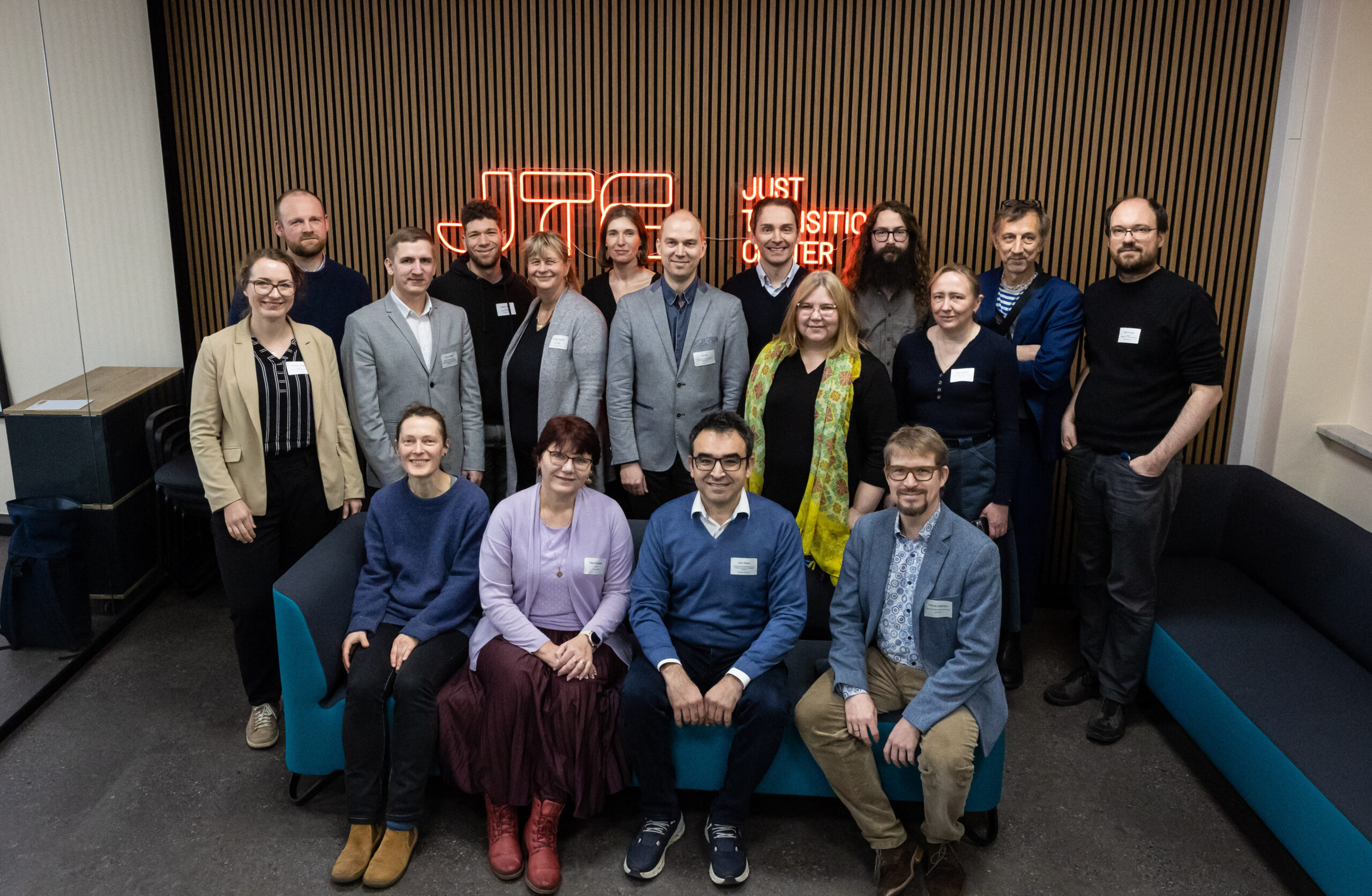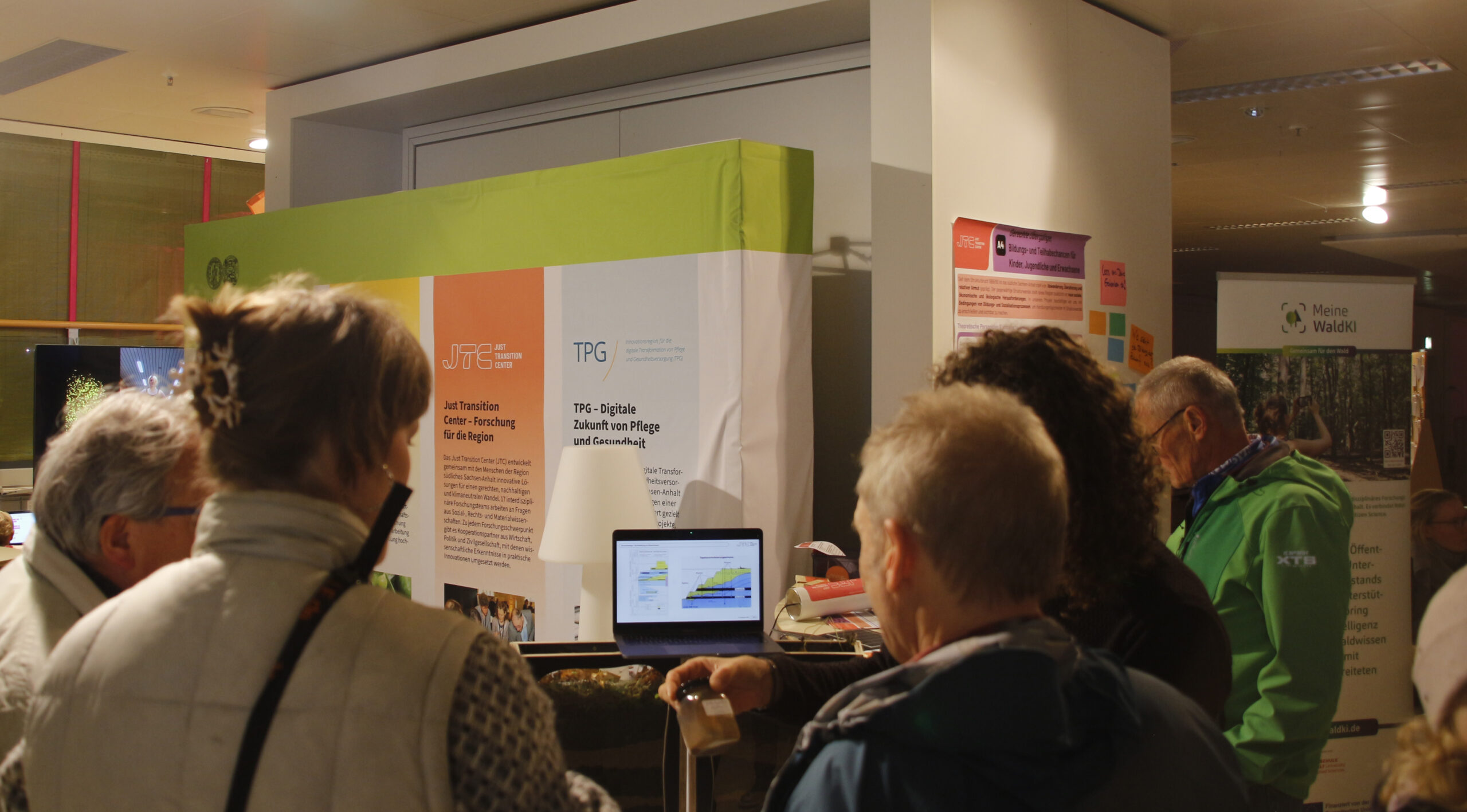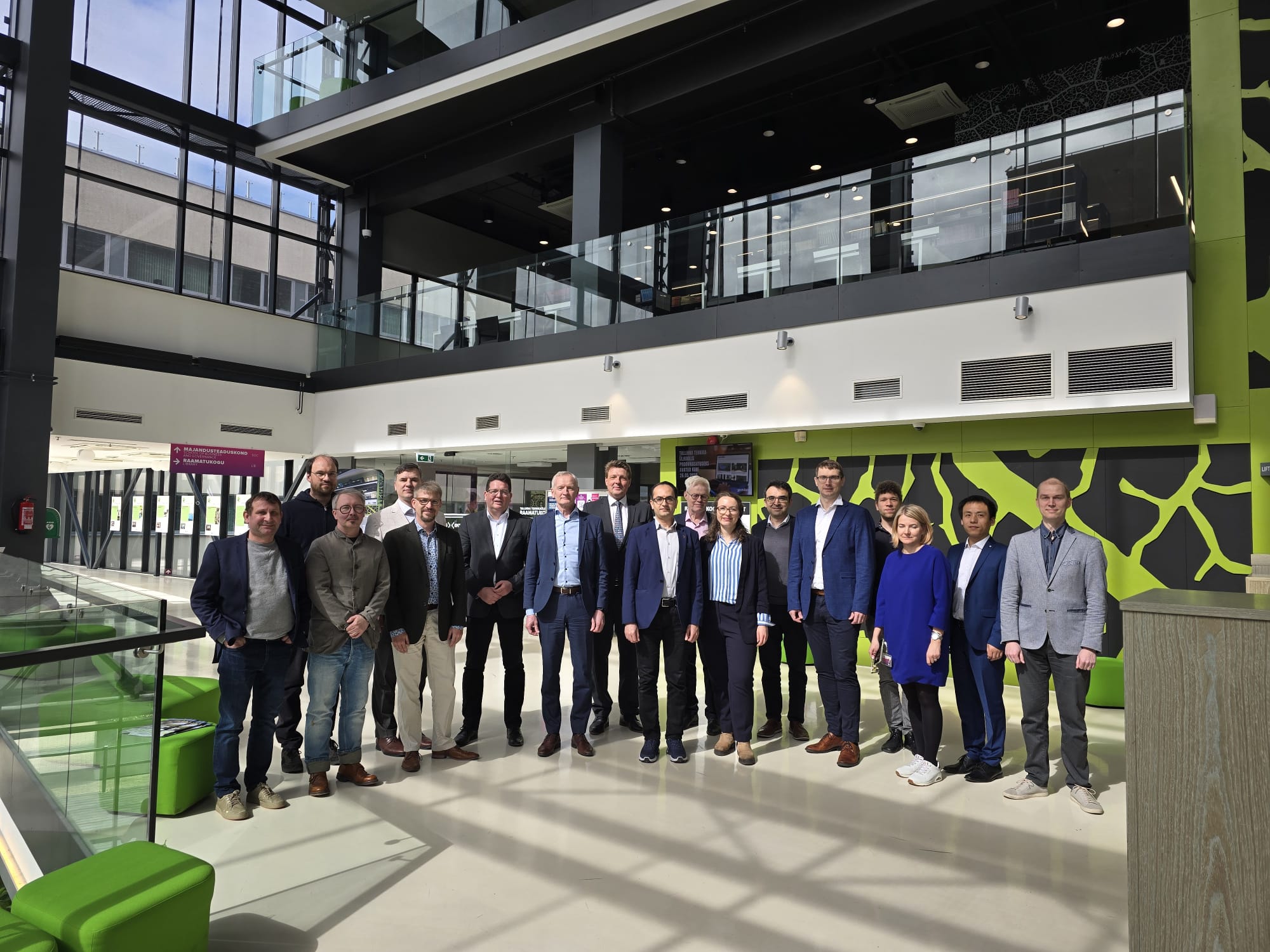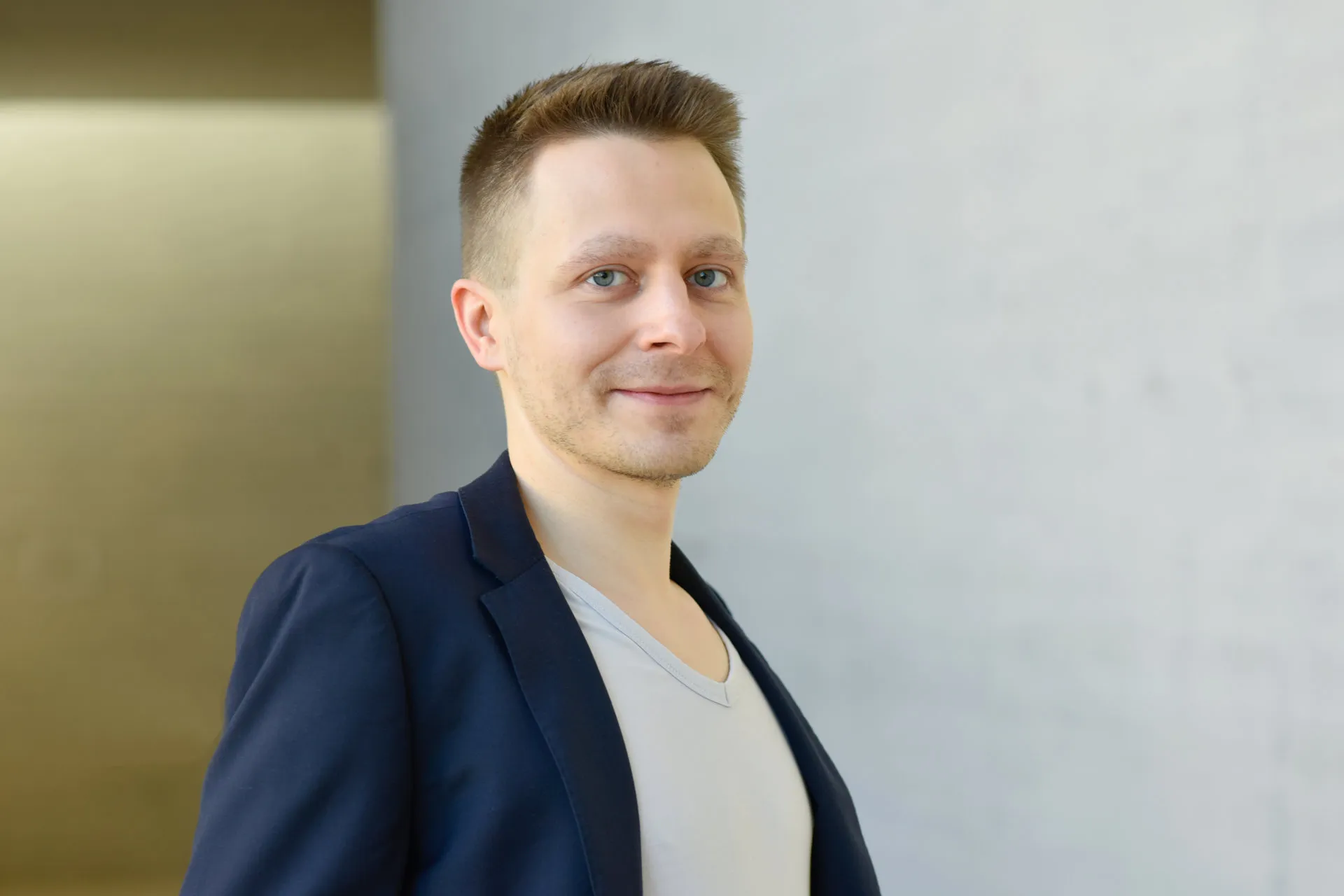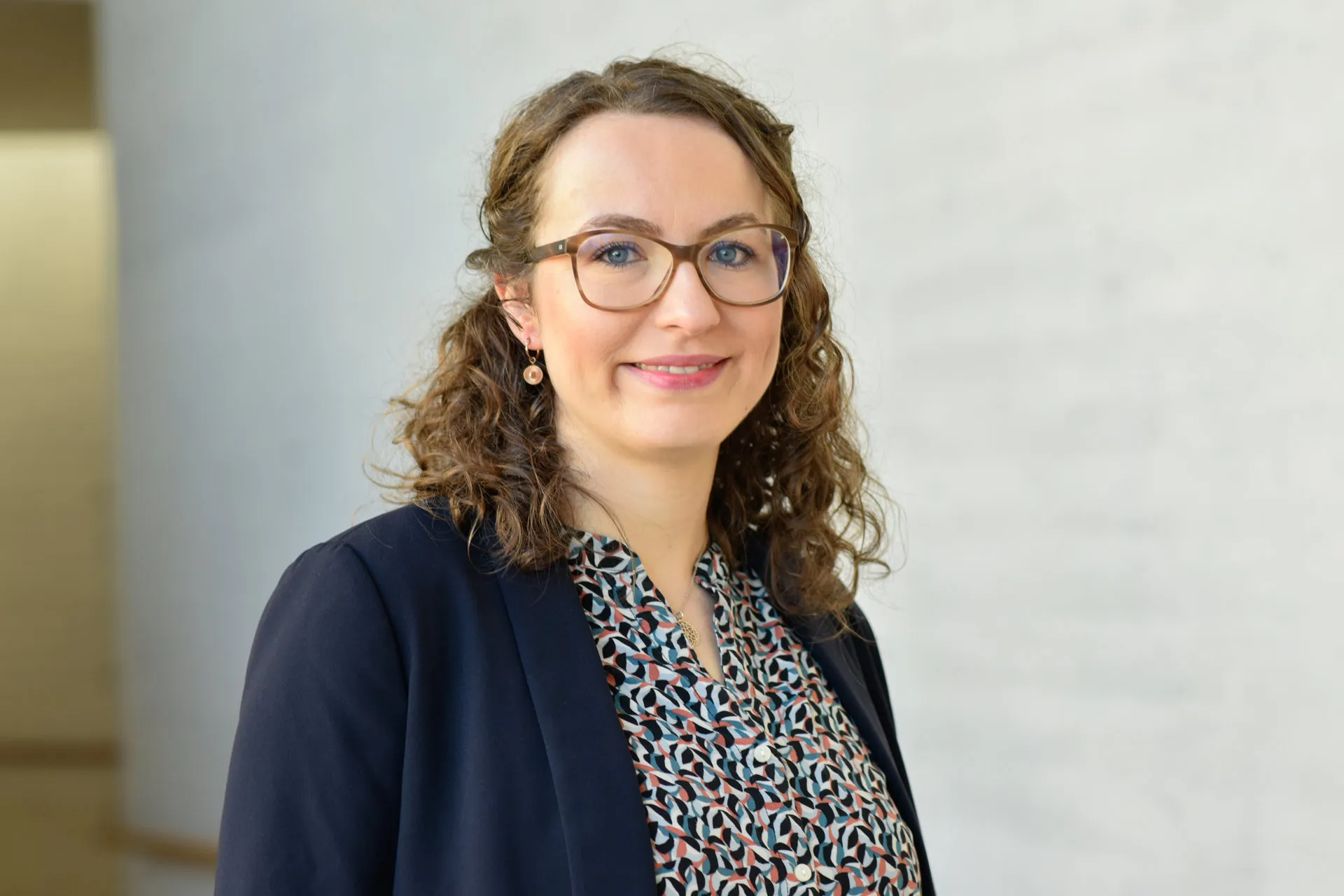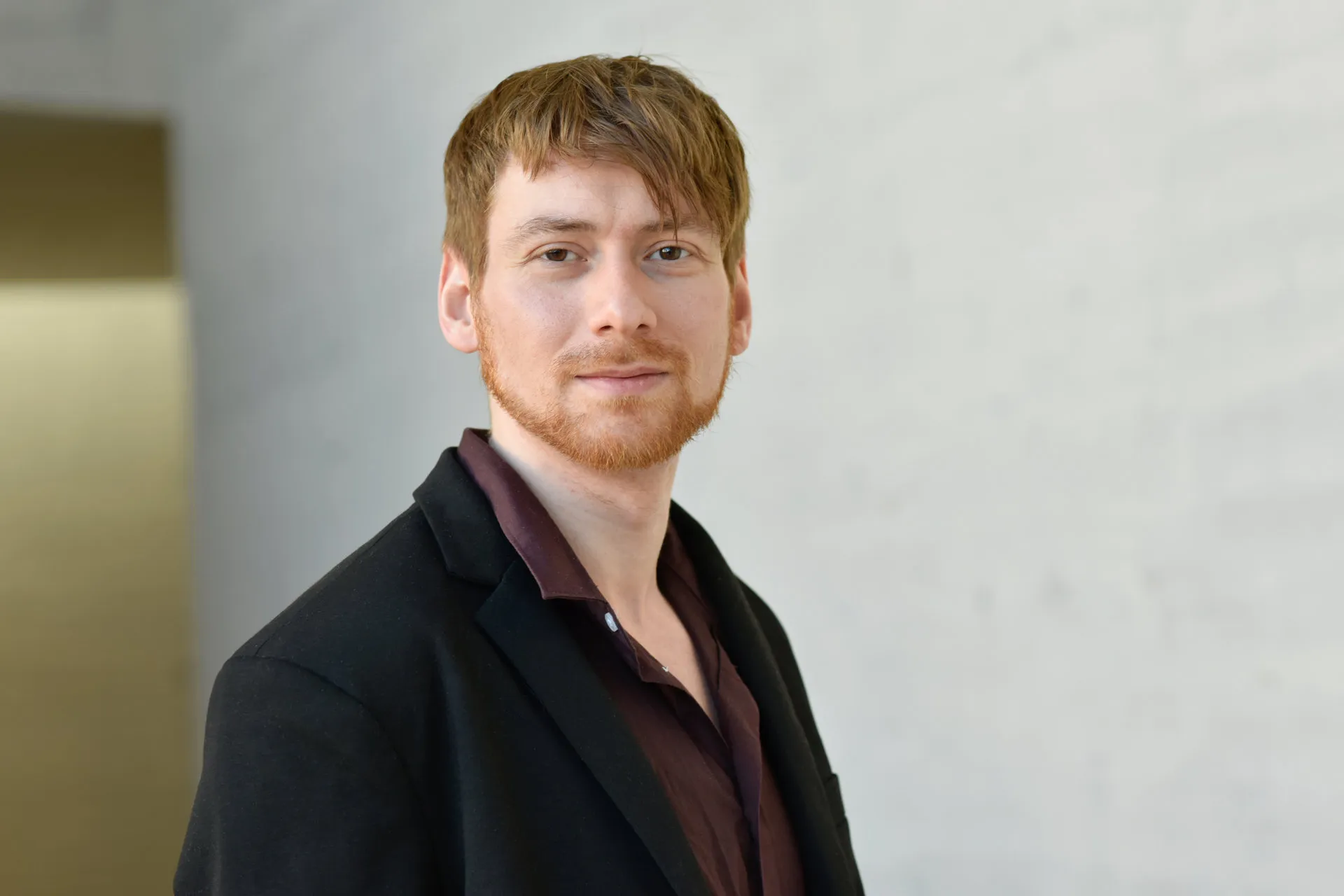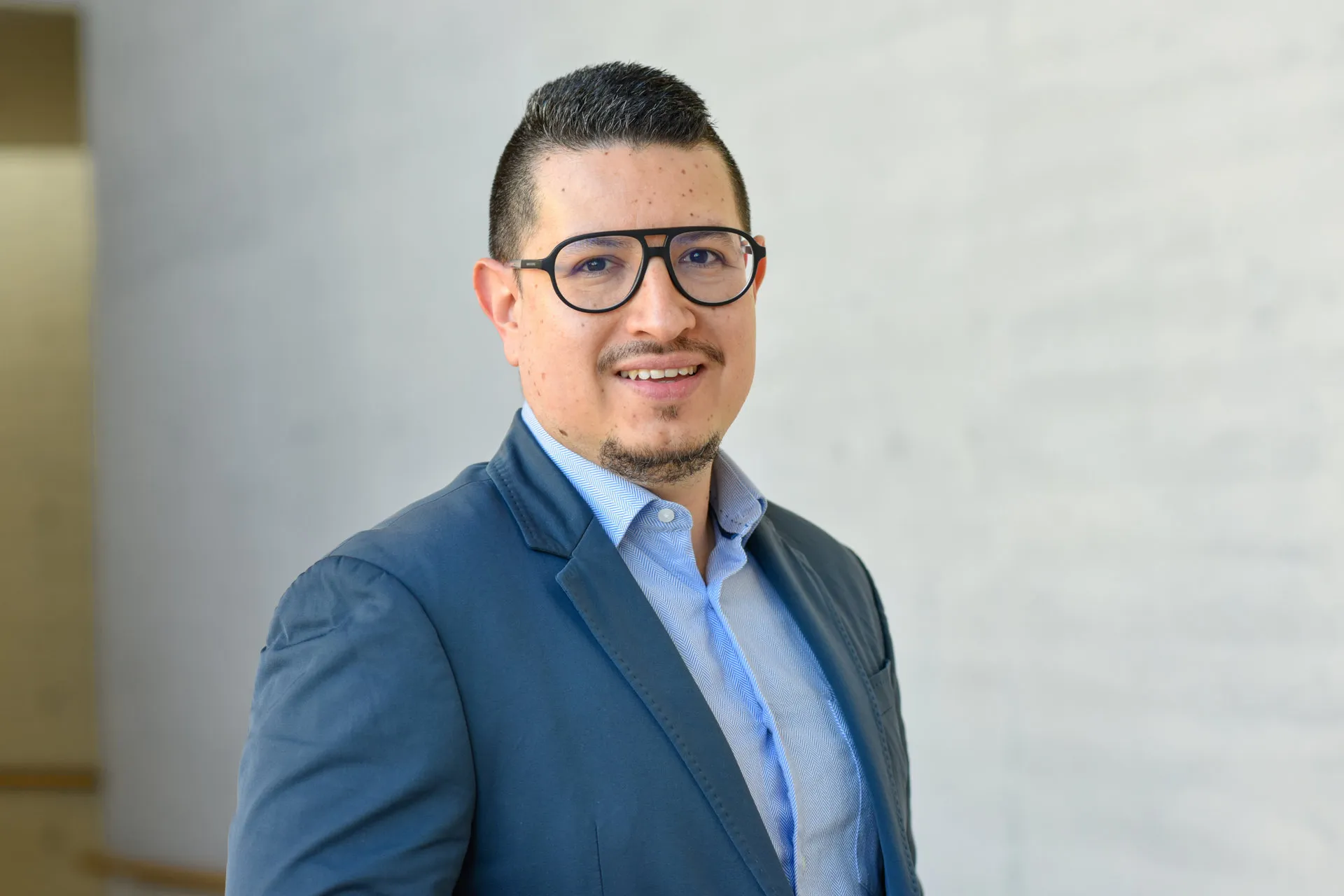Designer-Proteins as bio-based Binders
We develop sustainable, non-toxic, and high-performance protein-based adhesives.
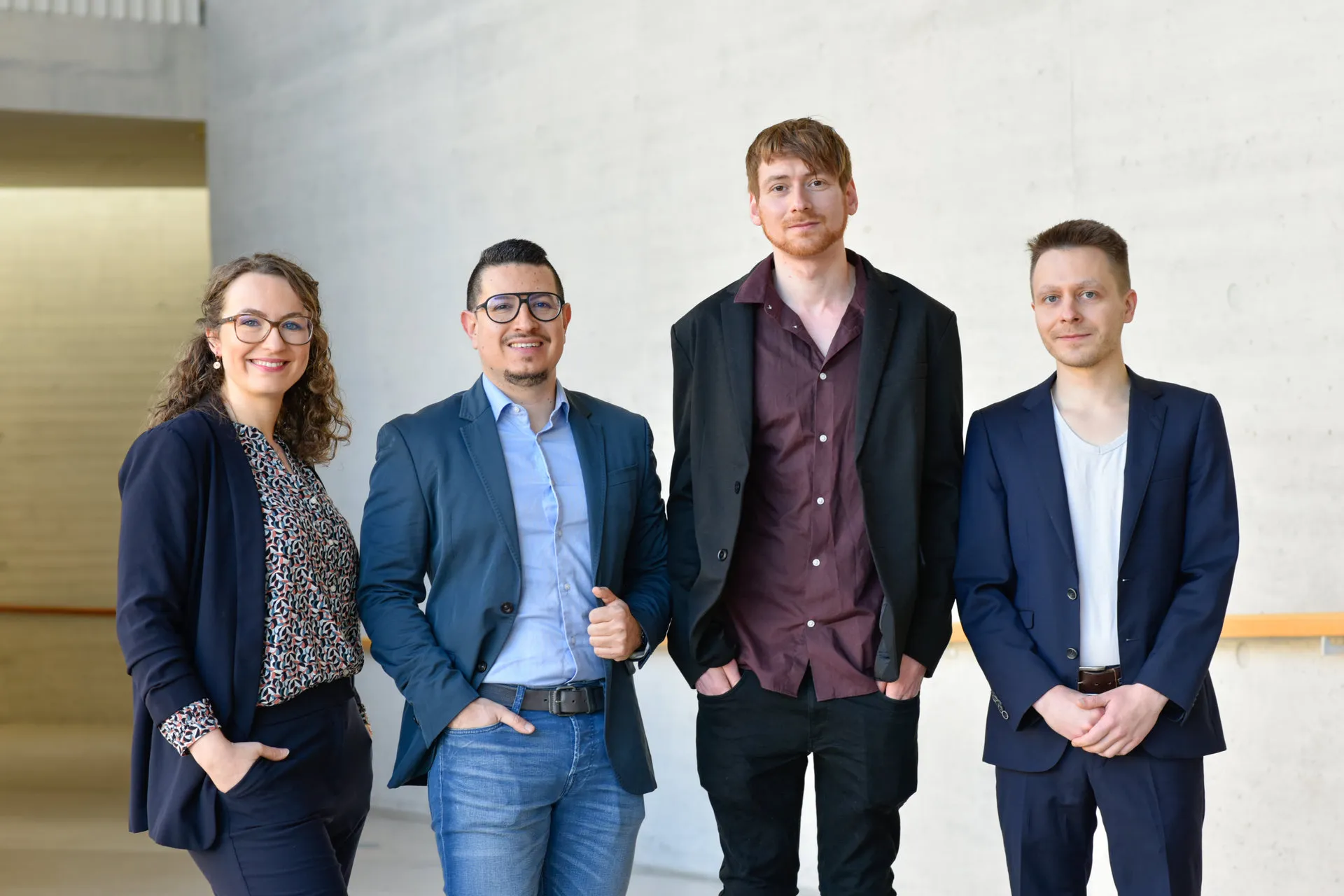
Inspired by nature, we offer a ‘construction kit’ for an environmentally friendly and biocompatible alternative to synthetic adhesives. We see the application in industrial and pharmaceutical products.
read more
In the course of evolution, nature has developed highly functional proteins to adhere to a variety of surfaces. These proteins are a valuable inspiration for innovative functionalities. These protein building blocks can be combined using modern genetic engineering methods to create artificial, modular “designer proteins” (DPs) and produced using biotechnological processes.
Our aim is to establish the application of DPs in the binder and medical product industry. Specifically, we are concentrating on the development of adhesives for binding materials such as sand and wood (I). These adhesives should not only meet the requirements for formaldehyde-free adhesives, but also enable the environmentally friendly degradation of used binders so that fillers such as wood chips can be fully recycled. Furthermore, the DPs are to be used for the development of new biomedical materials (II).
Due to their excellent biocompatibility and wet adhesive properties, DPs are suitable as surface coatings for implants. By integrating special peptide motifs into the DP platform, cell adhesion can be improved.
Team
Dr. Constanze Zwies, Team Leader
Dr. Jaime Andres Garcia Diosa
Marco Bialas
Martin Schütze
We cordially invite you
Here you can find all the events where you can meet our research team. We look forward to your visit!
Zur Zeit keine aktuellen Events
